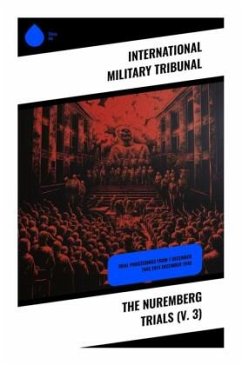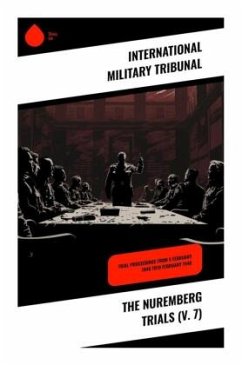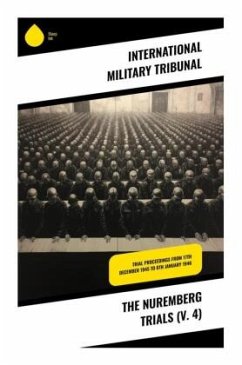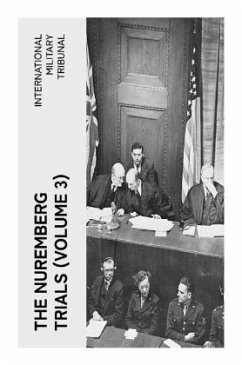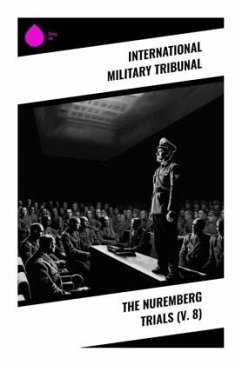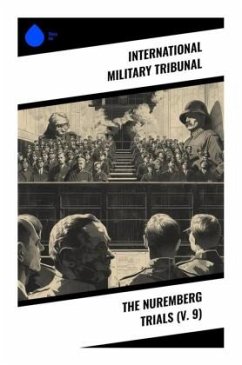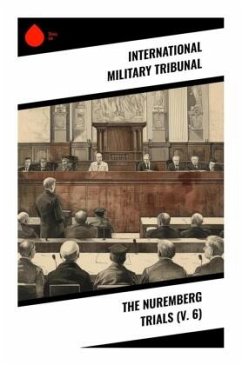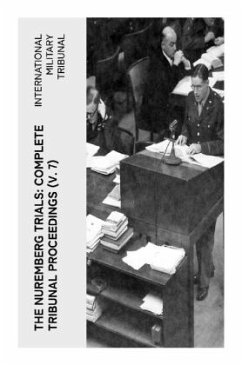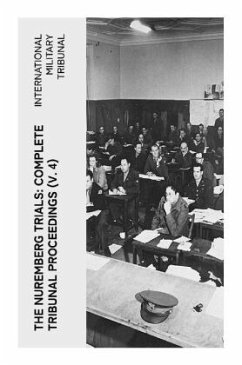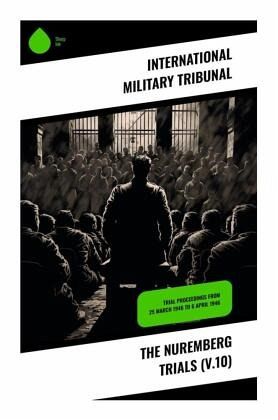
The Nuremberg Trials (V.10)
Trial Proceedings From 25 March 1946 to 6 April 1946
Versandkostenfrei!
Versandfertig in 6-10 Tagen
21,40 €
inkl. MwSt.

PAYBACK Punkte
0 °P sammeln!
The Nuremberg Trials (V.10) is a seminal work documenting the landmark legal proceedings following World War II, wherein prominent leaders of Nazi Germany were prosecuted for war crimes and crimes against humanity. This volume emphasizes the trials' profound impact on international law and human rights, showcasing both the meticulous legal processes and the moral imperatives that underscored the hearings. The narrative is characterized by a meticulous archival style, employing transcripts, evidence, and testimonies that provide readers a rare glimpse into the complexities of justice in the wak...
The Nuremberg Trials (V.10) is a seminal work documenting the landmark legal proceedings following World War II, wherein prominent leaders of Nazi Germany were prosecuted for war crimes and crimes against humanity. This volume emphasizes the trials' profound impact on international law and human rights, showcasing both the meticulous legal processes and the moral imperatives that underscored the hearings. The narrative is characterized by a meticulous archival style, employing transcripts, evidence, and testimonies that provide readers a rare glimpse into the complexities of justice in the wake of unprecedented atrocity, all set against a background of a society grappling with the consequences of its past. The International Military Tribunal, comprised of leaders from the United States, the Soviet Union, the United Kingdom, and France, aimed to establish a precedent for global accountability. The Tribunal's members faced intense ethical and political dilemmas as they sought effective justice while navigating the intricacies of military and civil law. Their work was influenced by evolving sentiments about war crimes, atrocities, and the necessity for a legal framework that could hold individuals accountable beyond their national jurisdictions. This volume is essential reading for anyone interested in the intersections of law, history, and ethics. The Nuremberg Trials (V.10) not only provides a critical understanding of this historic moment but also serves as a stark reminder of our collective responsibility to ensure that such atrocities are acknowledged and never repeated. Readers will gain invaluable insights into the evolution of international law and its ongoing relevance in contemporary discussions about justice.



